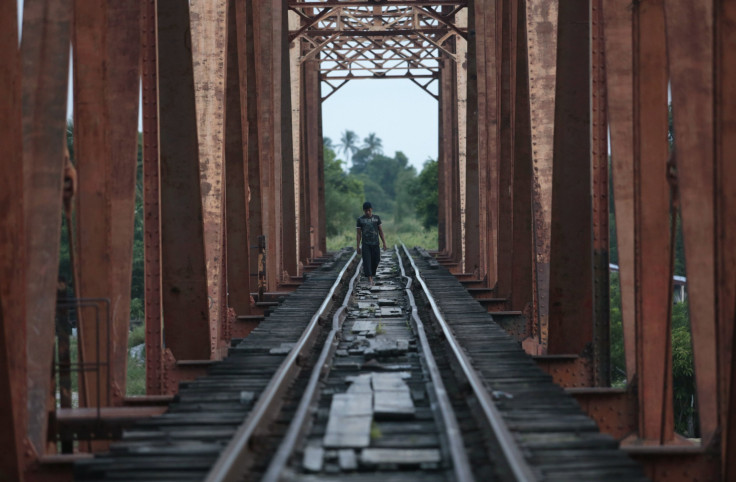Central American Countries To Pitch $20 Billion Fund To Curb Illegal Migration: Report

The governments of Guatemala, El Salvador and Honduras reportedly are planning to pitch a $20 billion fund to boost their economies and curb the migration flows that overwhelmed the southern U.S. border last year.
The foreign ministers of the so-called Northern Triangle countries are scheduled to visit the White House on Tuesday to discuss the idea, Reuters reported Wednesday. They had already submitted a draft of the plans to President Barack Obama during April’s Summit of the Americas in Panama City. The move also comes as Congress continues to debate a $1 billion White House aid package for the three Central American nations.
According to Reuters, which previewed a document outlining the plan, the proposal includes several initiatives to spur economic growth, improve infrastructure and create jobs to scale back incentives for people to migrate north. The joint fund would accelerate economic growth to 3.5 percent across the three countries and create 600,000 jobs, making the region “one of the main tourist destinations, a magnet for foreign investment and a regional logistical center for the hemisphere” by 2020, the document said.
The $20 billion would draw from a variety of sources, including the U.S. government, other supportive countries in the region, development organizations and public and private entities, the plan suggested.
The end goals are similar to those of the White House’s $1 billion proposal, although obviously much more ambitious in scale. In February the Obama administration outlined the $1 billion fund for the three Central American nations, following several high-level discussions in the wake of the surge of unaccompanied migrant children and families apprehended at the southwestern U.S. border last summer. That proposal included funds for economic development, including educational programs, job training for at-risk youth and energy development, as well as health and anti-drug initiatives and financing for military operations.
The U.S. has long provided Central America with aid, but the $1 billion sum is three times the usual amount allotted. Still, it remains unclear whether Congress will even approve that proposal. The House of Representatives subcommittee on foreign operations proposed only $296.5 million – a third of the White House’s package – in the 2016 fiscal year budget for foreign aid, El Salvador’s La Prensa Grafica reported.
At a conference this week in Washington, Roberta Jacobson, the State Department undersecretary for Western Hemisphere affairs, said she feared the consequences of downsizing the Central America fund.
“What I fear, and I will be very honest, is that Congress is only going to authorize the security part and say we don’t need the rest. And that is a recipe for disaster because everything is security,” she said, according to the Voice of America. “And unless we do everything, we will fail. And we will have more migration crises.”
El Salvador, Honduras and Guatemala were the top source countries for the tens of thousands of migrants apprehended at the U.S. border last year. More than 68,000 unaccompanied children and an additional 68,000 families crossed the border illegally in fiscal year 2014 in what the Obama administration acknowledged as a humanitarian crisis. Many migrants reported they were fleeing violence and instability in their home countries, while others travel north in search of better economic opportunities.
All three Northern Triangle countries have among the world’s top murder rates. Honduras claims the top spot, with 66 homicides per 100,000 people, but violence is accelerating in neighboring El Salvador as well. In May, El Salvador recorded its deadliest month in 20 years, with 635 murders.
In recent months, however, mass protests began targeting the governments of Guatemala and Honduras over high-profile corruption schemes, adding another twist to the foreign aid negotiations. Thousands marched in Tegucigalpa, Honduras, this week to call for the resignation of President Juan Orlando Hernandez. Meanwhile in Guatemala, a widening customs-bribery scandal has led to several high-profile resignations, including that of the vice president in May.
© Copyright IBTimes 2024. All rights reserved.






















